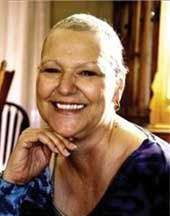The Kindness of Strangers:Understanding Bereavement
All patients experience the loss associated with death at one time or another in their lives. Showing them the “kindness of a stranger” can help them endure these trying moments.
by Noel Kelsch, RDH
Each time patients sit in our dental chairs, they bring with them the remnants of the life they are living. The happiness of a child’s success in school or the tragedy of losing a loved one accompanies our patients as they enter the front door of our offices.
Last month, when I was at a dental conference, Tracey, the husband of my dear friend Melissa, called to tell me it was time to come home. Melissa had been a warrior the past five years. She had been fighting breast cancer with a strength I have never seen anyone possess. I have had the privilege of being her soldier, calling her doctor, taking her to appointments, laughing at her jokes, and learning from her experience.
As I left the dental conference, I knew I was going home to tell my best friend goodbye. Fighting back tears, I climbed into the limo and rode to the airport. A chipper driver told me about the severe weather in Denver and the three-hour backup at the airport. I choked back the urge to cry and instead smiled and thanked her. She saw through my smile as she retrieved my bags from the trunk. I was taken aback as she asked, “Can I give you a hug? You look like you need one.” She hugged me and a sense of calmness came over me.
The airport was filled to the brim. People spilled out the door tired, angry, and frustrated from having waited days for flights. The weather had created an unending line of people who had lost their patience and did not intend to try to find it. I gathered my things and stood in line. In a raw voice that reflected the hours she had spent trying to defy what the weather had done to people’s travel plans, the ticket lady said: “It is an estimated three-hour wait in line.” My flight was due to depart in 47 minutes.
As I stood there, Melissa’s daughter called my cell phone and delivered the news that my dear friend was no longer in pain. She had gone home to her Father in heaven. Melissa’s death hit me hard. After years of talking with her about death and preparing for it, I was devastated. How can you prepare to mourn? My heart hurt and tears began to flow at a rate I had never experienced before.
That is when I learned something about compassion that I never want to forget. As I stood with tears pouring down my cheeks, the man in front of me opened his suitcase and handed me his mini-pack of tissues. He did not say a word. The woman behind me reached over and hugged me and said, “Remember, it is OK to cry. I am sorry for your loss.” As the line snaked around unending, word spread of my loss and kind strangers began to give me tokens of their caring spirit: a bottle of water, a pat on my shoulder, an offer to take my bags. I was touched and tried to compose myself as I knew the days ahead would be filled with daunting tasks: explaining to a 6-year-old why his mom is gone, preparing a eulogy that reflected the amazing person Melissa was, arranging a celebration-of-life party.
In that airport ticket line, I felt the true meaning of kindness. A woman several people in front of me stood on her suitcase and announced, “This woman just lost her best friend; she needs to go to the front of the line.” The shuffle of suitcases and compassion of strangers was deafening. My belongings were soon at the front of the line, and I was on the plane in minutes.
There are times when patients enter the office, carrying with them the loss of a loved one. At these times, I hope I can remember the kindness of strangers. Understanding the grief process and knowing how to interact can create an environment of kindness and compassion.
Understanding The Grieving Process
At some time in life, all of us will grieve about a loss. The most common misconception is believing that grief will end at a given point in time. The grieving process is often over a life span. When we first become aware of a loss of great importance to us, we may grieve intensively. In most cases, the intense grieving period will gradually become shorter. Then, at some point it will occur less frequently, and gradually decrease in intensity. The Kubler-Ross Model is a great tool to use in understanding the stages of grief in regard to death, and is also a valuable tool in understanding loss of any kind - from a romantic relationship to moving away from friends. The stages of grief do not always happen in order, and they may have considerable movement back and forth.
The Kubler-Ross Model
Stage one: Denial. During this stage, we tell ourselves “No, this can’t be. There must be a mistake. This just isn’t happening.” Denial is often functional as it helps cushion the impact of loss.
Stage two: Rage and anger. During this stage, we ask ourselves “Why me? This just isn’t fair!” For example, terminally ill patients resent that they will soon die while other people will remain healthy and alive. During this stage, God is sometimes a target of the anger. The terminally ill, for example, blame God as unfairly imposing a death sentence.
Stage three: Bargaining. During this stage, people with a loss attempt to strike bargains to regain all or part of the loss. The terminally ill may bargain with God for more time. They promise to do something worthwhile or to be good in exchange for another month or year of life. Kubler-Ross indicates that even agnostics and atheists sometimes attempt to bargain with God during this stage.
Stage four: Depression. During this stage, those experiencing a loss tell themselves, “This loss is true, and it’s really sad. This is awful. How can I go on with my life?”
Stage five: Acceptance. During this stage, the person fully acknowledges the loss. Survivors accept the loss and begin working on alternatives to cope with the loss and to maximize its impact.
Knowing What To Say
Knowing what to say - and equally important what not to say - can be the difference between being helpful or adding to the pain the person is experiencing. Observing patients’ signals for not wanting to share their pain is important. Understanding the stage the person is currently experiencing is important.
I had a patient come in for a cleaning the day after her son’s tragic death. I shared with her that she was in a safe space to “feel whatever she needed to feel.” She turned to me and said, “I came here today because I knew you would take care of me. I knew it would be OK if I did not feel or say anything.” I took her blood pressure, gave her instructions about nutrition (she was significantly underweight having taken care of her son and ignoring her own nutritional needs), and performed a prophylaxis. She called me two weeks later and told me how much she appreciated my understanding her need for solace and a space not to feel for a moment.
Each patient will have different needs, and clinicians need to be aware of those needs. Many times patients have shared their pain while in the chair. Other times they are not in the stage of acceptance. Patients often give you clues as to the stage they are in by their mannerisms and words.
Things To Say
- I am sorry for your loss.
- If you would like to talk, this is a safe place to do it.
- You are in my thoughts and/or prayers.
- I understand your tears.
- Your feelings are normal.
- There are bereavement groups in our area for your support. I have the phone number if you would like it.
Things Not To Say:
• I know how you feel. This may seem a kind and harmless statement, but for many it may bring feelings that you do not understand their experience and can place a wall between you and the patient. My older sister was killed by a drunk driver while walking across the street one afternoon. The man who murdered her threw her over a hundred feet and then drove over her. He was an ambulance driver, and he never stopped to offer aid. The tragic death was hard, and the court case compounded everything. One day as my brother Jack and I sat at the court house waiting for a hearing, the court-appointed special advocate said to us, “I know how you feel.” My brother responded, “Oh, I am so sorry your sister was murdered because the laws in your town allowed someone to be overserved liquor.” At that moment I realized that some statements can invalidate the loss a person is experiencing. Each experience is different. Dr. M.J. Moffat stated: “It is more important to let the mourner have room to tell how they feel than to place a feeling on them by saying you know how they feel. A better statement would be simply, ‘I am sorry for your loss.’”
• You can always have another one. When someone loses a child, this statement can make the patient feel that you clearly do not understand. In many cases, they may not be able to “have another one.” One child can never replace another child.
• You must feel ... Do not place emotion on the person. Sometimes death is a relief and people will feel very guilty for feeling that relief.
As dental hygienists, we cradle people in our laps all day. Each of the patients who come into our room has experienced losses at one time or another in their lives. Being aware of their needs and showing them the “kindness of a stranger” can help them endure these trying moments.
A special thanks to all the folks at Water Pik, especially Carol Jahn, who picked up an early morning call and answered, “Family first, what can I do to help?” Thank you!
About the Author
Noel Brandon Kelsch, RDH, is a freelance cartoonist, writer, and speaker. Noel’s cartoons can be seen in RDH magazine and her articles have been published in both dental and nursing trade magazines, as well as books. She has received many national awards including Colgate Bright Smiles Bright Futures, RDH/Sunstar Butler Award of Distinction, USA magazine Make a Difference Day award, President’s Service award, Foster Parent of the Year, and is a five-time winner of the Castroville (Calif.) Artichoke cook-off! Her family lives in Moorpark, Calif. She can be contacted at [email protected].
References
• Kubler-Ross E. On death and dying. 1969; New York: Mac Millan.
• Zastrow C, Kirst-Ashman KK. Understanding human behavior and the social environment. 2007; Thompson Brooks/ Cole Publishing, Belmonte, Calif.
• Moffat MJ. In the midst of winter: selections from the literature of mourning. 1982; New York: Random House.
• Diagnostic and statistical manual of mental disorders. Fourth Edition, Text Revision. Washington, D.C., American Psychiatric Association, 2000.
• Brandon-Kelsch N. 2007; Personal Journal.
Bereavement
Bereavement is a reaction to the death of a loved one. As part of their reaction to the loss, some grieving individuals present with symptoms characteristic of a major depression episode; e.g., feelings of sadness and associated symptoms such as insomnia, poor appetite, and weight loss). The bereaved individual typically regards the depressed mode as “normal,” although the person may seek professional help for relief of associated symptoms such as insomnia or anorexia. The duration and expression of “normal” bereavement may vary considerably among different cultural groups. The diagnosis of major depressive disorder is generally not given unless the symptoms are still present two months after the loss.
However, the presence of certain symptoms that are not characteristic of a “normal” grief reaction may be helpful in differentiating bereavement from a major depressive episode. These include:
- Guilt about things other than actions taken or not taken by the survivor at the time of death
- Thoughts of death other than the survivor feeling he or she would be better off dead or should have died with the deceased person
- Morbid preoccupation with worthlessness
- Marked psychomotor retardation
- Prolonged and marked functional impairment
- Hallucinatory experiences other than thinking that he or she hears the voice of or transiently sees the image of the deceased person


